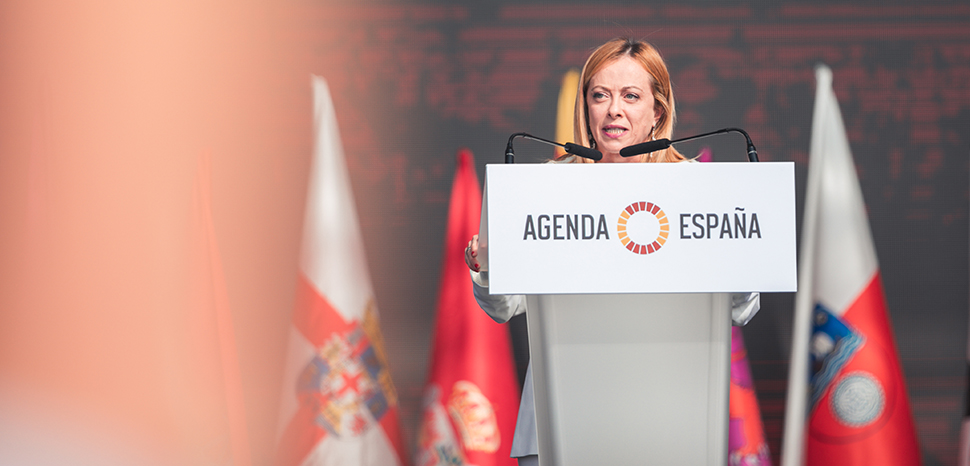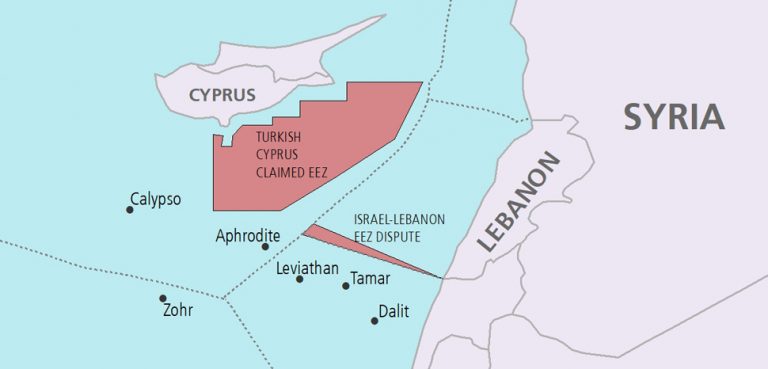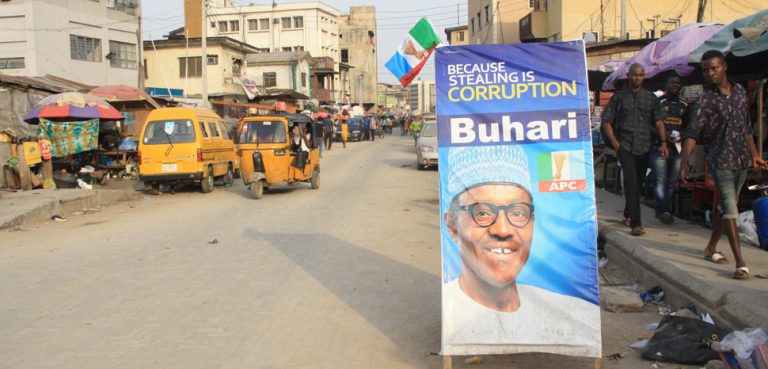Giorgia Meloni has vowed to make Italy an energy hub for Europe through her “Mattei Plan for Africa,” a new international cooperation effort towards African countries, aimed at – in the words of Fratelli d’Italia MP Marco Osnato – “giving back to Africa its dignity” through the development of its resources. Repeatedly stating it “won’t be predatory” during her visits to Algeria and Tunisia, Meloni anticipates the plan to be defined at the Italy-Africa summit scheduled for this fall.
The current state of Italian diplomacy
Since the end of the Cold War Italy has approached foreign affairs from a defensive neorealist standpoint: as the threat of a US disinterest in Europe’s security following the dissolution of the Soviet Union undermined Italy’s Atlanticism, and as Italy’s ‘Bribesville’ scandal drastically restructured its domestic politics, Italian foreign policy ambitions were resized to merely satisfy the country’s domestic security objectives and deprived of any ideological character. When Italy became “too big to fail, too big to bail” following the Eurozone crisis of 2010 that catalyzed Italy’s 120% debt-to-GDP ratio into a full-blown economic recession, a major shift towards economic austerity became critical. The pension reform of 2011 and the Jobs Act of 2014 satisfied this objective by cutting back the protection of workers and excessive social spending to improve debt and deficit sustainability and encourage private investment, fully consolidating the Italian neoliberal discourse that has been dominant since.
In July 2014, then-prime minister Matteo Renzi arrived in Maputo, Mozambique, alongside a delegation comprised of Italy’s top oil & gas executives, to encourage a foreign-investment friendly law just after Italian fossil fuel giant Eni made the greatest natural gas discovery of its history in the country. Renzi’s mission was successful and perhaps led to the realization that Italy could leverage its reputation as a defensive neorealist to easily secure investments in developing countries and fulfil its newly-found neoliberal agenda. While a new cold war between the West and the East had already started, both developing countries unwilling to pick a side as well as paranoid global powers would find Italy’s ideology-free foreign policy approach reassuring. What followed was a 250% increase in foreign investment toward developing countries from Italy between 2014 and 2016, such that in 2019 Italy became the single OECD country investing the most in export finance.
Giorgia Meloni’s priorities
When engaging in foreign relations, Giorgia Meloni is always accompanied by two prominent advisors: her military and defense advisor General Franco Federici, and her foreign affairs advisor Ambassador Francesco Maria Talò. Both of these figures are explicit Atlanticists: in September 2011 then-Consul General to the US Ambassador Talò arrived in Afghanistan where he commemorated the tenth anniversary of 9/11 with the troops of the Italian NATO mission to the country with the words “We are all Americans, we are all NATO,” while General Federici had just left the command of the mission. A decade late, General Federici would take the command of a NATO mission again in Kosovo while Ambassador Talò would take the role of Italy’s permanent representative at NATO.
While Meloni’s selection of her inner circle has confirmed Italy’s long-standing Atlanticist stance, her actions have also confirmed its defensive Neo-realist approach to foreign affairs. Giorgia Meloni’s electoral success was ultimately down to the fact that her party, above others including even the three parties it shared a platform with, stressed the most the critical importance of improving Italian energy security, which had been worrying Italians above anything else. Indeed, improving gas security moved to the top of the list of Italy’s domestic security objectives, as demonstrated by the tenacious installation of the new controversial regasification plant in the Tuscan city of Piombino from the efforts of the government. Since her election, she established tight connections with Italy’s primary natural gas trading partners, besides Russia. When in January she visited the Libyan Prime Minister the two signed an agreement on cooperation, energy and regulation of migratory flows analogous to the agreement she had signed five days prior with the President of Algeria. A month later she had planned to meet with the Emir of Qatar but got sick with flu and had to settle for a telephone conversation. In June her efforts have been centered around Tunisia’s default as she visited President Kais Saied to put forward her full support, promising a second visit alongside EU Commission chief von der Leyen and Netherlands PM Rutte to encourage a stalled IMF loan that could prevent the default and, crucially, ward off any security threats to the Transmed gas pipeline connecting Italy with Algeria through Tunisia. To decrease Italy’s reliance on Russian natural gas Meloni has ventured as far as removing an Italian arms embargo on the United Arab Emirates to improve the relations with the nation, which she says is available to play an important role in improving Italy’s energy security as the seventh country in the world by natural gas reserves. Similarly, Meloni has sought to strengthen energy cooperation ties with Iraq, Kazakhstan and Uzbekistan – which respectively rank 12th, 15th and 19th by gas reserves in the world. Apart from Algeria, Libya and Tunisia Meloni has focused her attention also on other African countries like Angola, The Republic of the Congo, Burundi, Ethiopia, Mauritania, Niger and Somalia, making clear her commitment to the “Mattei Plan for Africa.”
Ten years of export finance in Africa
As already stated, Italian business in Africa is not a new phenomenon and has been especially prominent in the past decade with Italy’s newfound neoliberal identity. In fact, between 2013 and 2021 the Italian State officially supported hundreds of projects which had potentially medium or high negative environmental or social impacts, for an estimated total of 22 billion euros provided by the State in the form of credit insurance, direct finance, surety or guarantees. Of these projects, only 27 were toward African countries, but together, they accounted for roughly 32% of the total volume – approximately 7.2 billion euros (derived from SACE ex-post disclosure yearly reports). Despite Italy’s efforts at presenting itself as a pragmatic partner for African countries, 47.3% of the amount invested went to cover projects that ended up being highly controversial.
The most exemplary case is the previously-mentioned gas production project in Mozambique undertaken by Eni that led to the consolidation of Italy’s most recent investment strategy in Africa. Between 2016 and 2021, Italy issued 1.6 billion euros worth of guarantees for the project, but such investments did not come without a number of broken promises on behalf of Eni. The company had been praised by its CEO Claudio Descalzi in 2015 for being “the only, and surely the first [company] that instead of producing for exporting like everybody does – as you can earn much more – produces also for the domestic part, as we have done in Libya, Nigeria, Congo, and as we will do in Mozambique”, only for it to sell 100% of the production of the project’s floating production unit – currently the only unit operating after a militant insurgency group attacked the on-shore development in 2021 – to British Petroleum the next year. With 70% of the local population lacking access to electricity, at least part of the production could have benefited the domestic sector. Promises to recruit domestic workers – which included both skilled and unskilled labor for support operations – vowed by Eni at the community meetings held before the development were also broken when in 2022 a Singaporean offshore accommodation vessel sailed in the Madagascar strait to host the workers employed in the support operations of the floating production unit. This deprived the Mozambican workforce of an opportunity to fulfil the demand for low-skill work in accommodation, hospitality and catering, the only real employment opportunity for locals, whose overall literacy rate is 47% and a mere 28% among females. Such employment opportunities were owed to the locals as the LNG development projects had just halted the boom in the tourism industry that had up until then blessed the region. Most tragically, the development of the LNG projects in Mozambique is believed to have contributed to the intensification of a conflict that has killed almost 4000 people and displaced nearly 1 million. As the resettlement plan developed by Eni and Anadarko proved to be inadequate both for the compensation of the 557 relocated households and for the conservation of their livelihoods, the resulting grievances of the locals became a recruiting opportunity for the jihadist militant group Ansar al-Sunna exploiting the contrasts between Muslim Makua, Mwani and Christian and politically dominant Makonde peoples. This failure, coupled with the Koysha Dam project in Ethiopia that caused forced evictions and water scarcity which resulted in an increase in the intensity of conflicts happening between the Turkana, Nyangatom and Dassanach people, amounted to 17.8% of Italy’s total investment, meaning that nearly one-fifth of Italy’s investment volume of the past ten years was allocated to projects believed to have caused or contributed to armed conflicts.
In 2017 and 2019 respectively, Italy backed the construction of two multipurpose dams on the Kimwarer and Arror rivers in Kenya, with Italian contractors CMC and Itinera leading the undertakings for a total of 498 million euros. The dams would never be constructed. The Kenyan finance minister was charged with abuse of office to the benefit of the two contractors; the Kenyan principal secretary of the national treasury was charged with illegally approving a payment of 1.9 million euros towards Italian bank Intesa SanPaolo – financing the project – while the investigations were ongoing; and the CEO of CMC was charged with conspiracy to defraud the Kenyan government, with a subsequent extradition request being issued to him after he failed to appear before court in Kenya. All this was while Italian export credit agency SACE was charging Kenya with a 17.5% insurance premium, around 12 times higher than the 1.5% average industry rate, with even countries like The Democratic Republic of Congo and South Sudan usually paying insurance premiums of around 3%. Even after the finance minister had been arrested and the investigations started, Intesa SanPaolo still wired 108 million euros to the Kenyan Treasury, all while CMC, despite having received two advance payments of 51 million euros in 2018, decided to sue the Kenyan Government at the International Court of Arbitration for damages despite the fact that the works hadn’t started and no land had yet been purchased for the project. In 2021, the Court of Ravenna opened an investigation into CMC over the alleged falsification of business records. Such cases of corruption or fraud by the contractors marred 30.4% of the total investment volume.
In 2013 African billionaire Akilo Dangote secured a 450-million-dollar investment from a consortium of banks for the construction of Africa’s largest refinery. 300 million euros worth of the total investment was guaranteed by Italy’s state export credit agency SACE with the whole deal facilitated by the Italian state development bank CDP. Later that year, workers started demonstrating in front of the refinery over pay issues and low wages, and the police’s efforts to disperse the crowd resulted in the death of a protester. Previously, the contractors involved in the construction of the refinery compelled thousands of Indian, Chinese and local workers to keep working in breach of local Covid-19 restrictions and social distancing rules. This move cost the lives of at least two Indian workers infected with the disease, whose causes of death were allegedly covertly concealed by their employers. Workers accused the police of being complicit in their employers’ misconduct and demanded their rights to be respected. Italy has been held partially accountable for these incidents as it benchmarked the project against the World Bank’s IFC Performance Standard 2 which demands that the investment beneficiaries treat their workers fairly and provide safe and healthy working conditions. Just like in this case, 30.1% of the total investment volume was allocated to projects that involved human rights abuses, such as the Italian-led Itare Dam project in Kenya which redirected water that had previously served the Kipsigis people, in favor of the majority Kikuyu ethnic group, which holds greater political and economic power in the country.
Looking ahead, Giorgia Meloni’s supporters have defined her foreign affairs strategy as “radically different,” and Meloni herself said she was not chosen by Italians to maintain the status quo; however, it remains to be seen whether the “Mattei Plan for Africa” won’t end up being merely a false flag for maintaining business as usual, business that so far has not been good to Africa.
The views expressed in this article belong to the authors alone and do not necessarily reflect those of Geopoliticalmonitor.com.




